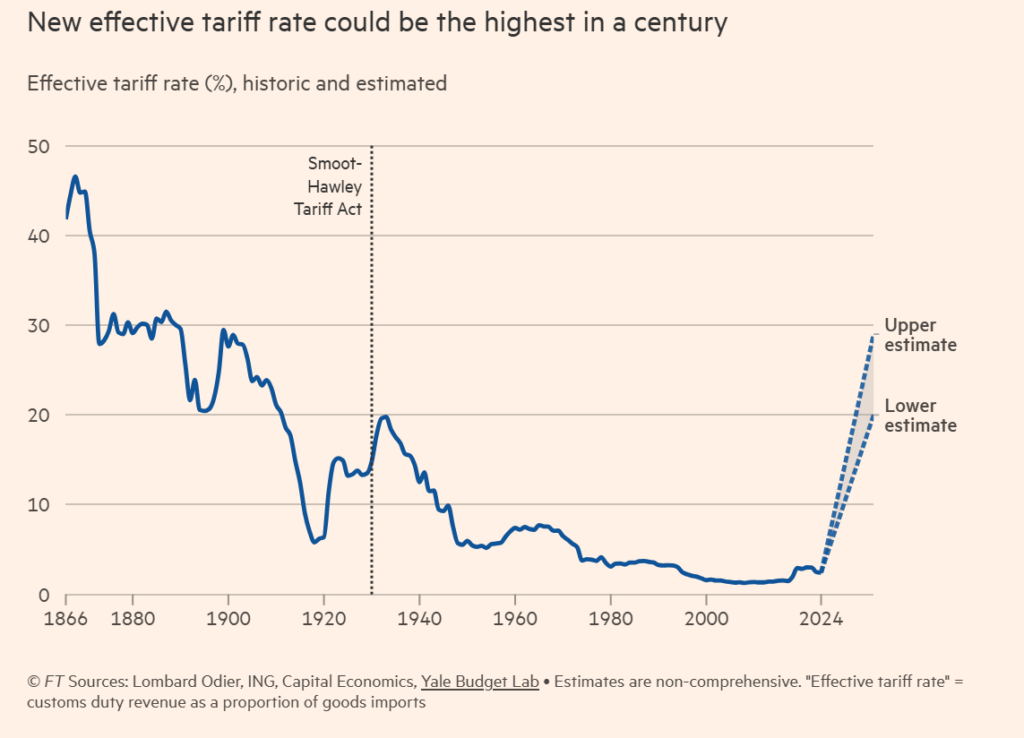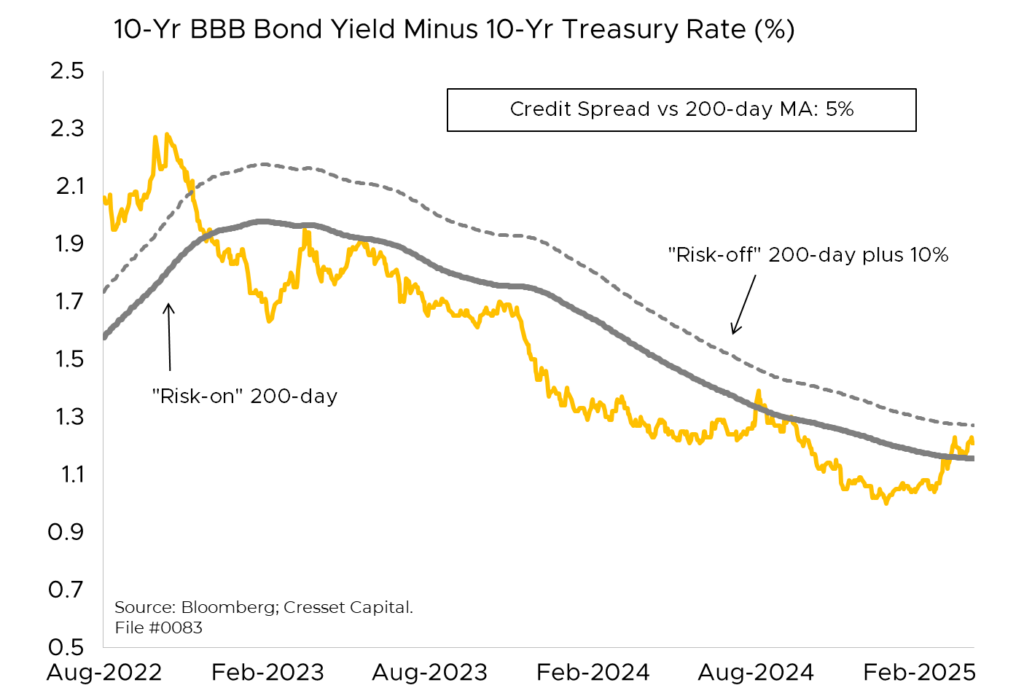Introduction
President Trump has announced sweeping tariffs on global imports, marking a dramatic shift in U.S. trade policy, sending financial markets into turmoil and raising fears of a global trade war.
This Plan Includes:
- A universal 10% tariff on nearly all U.S. imports starting April 5
- Additional “reciprocal” tariffs on specific countries starting April 9
- China faces the harshest treatment with total tariffs exceeding 54%
- (34% new tariffs plus 20% from earlier this year)
- The EU will face 20% tariffs, Japan 24%, and the UK 10%
- Canada and Mexico are exempt from the reciprocal tariffs but still face separate tariff threats
The Initiatives Include:
- Refinance $6 trillion of Treasury debt coming due over the next 12 months
- Balance the federal budget
- Rebuild/reshore domestic production through tariffs and corporate tax incentives
- Create efficiencies through deregulation and DOGE
The move is part of a broader fiscal policy initiative that seek to put America’s finances on a sustainable track.
Global Markets React to U.S. Tariff Hike
Trump described the move as “Liberation Day” for U.S. trade policy during a Rose Garden ceremony, where he argued the tariffs would raise money for tax cuts and spark domestic manufacturing. The effective tariff rates announced yesterday would likely push the U.S. trade tax rate higher than those established by the Smoot-Hawley Tariff Act of 1930, according to the Financial Times.

The announcement was met with global obloquy. European leaders condemned the move as a “major blow” to the global economy. China pledging retaliation. South Korea announced emergency support measures for affected industries.
The financial markets’ reaction was fractious. US futures are between three and four percent lower, while European markets are off just under three percent as of this writing. Trade dependent companies like Apple, Amazon and Nike are around 6% to the downside, while government bonds, including US Treasurys rallying on recession fears. Commodities, including gold, are falling on the prospect of weaker global economic activity. This morning, the price of a barrel of oil was more than $4.
Economists are resetting their growth estimates as talk of stagflation, weaker growth coupled with higher inflation, circulates. A Federal Reserve model suggests global tariffs could reduce US GDP by 2.8% while boosting inflation by 1.6%. Weaker growth and rising inflation complicate the Fed’s efforts to manage inflation and avoid a recession.
We continue to monitor credit conditions and market momentum. For now, both metrics remain neutral. As I articulated earlier this week, our credit metric has been a useful risk management tool.

Bottom Line:
Stay diversified. Quality bonds offer a diversification benefit in an uncertain equity market environment. We’ve moved beyond headline risk to globalization in reverse. It remains to be seen whether our global trading partners retaliate, or trade detente can be achieved. In the meantime, we are monitoring our metrics and tracking ongoing developments.

